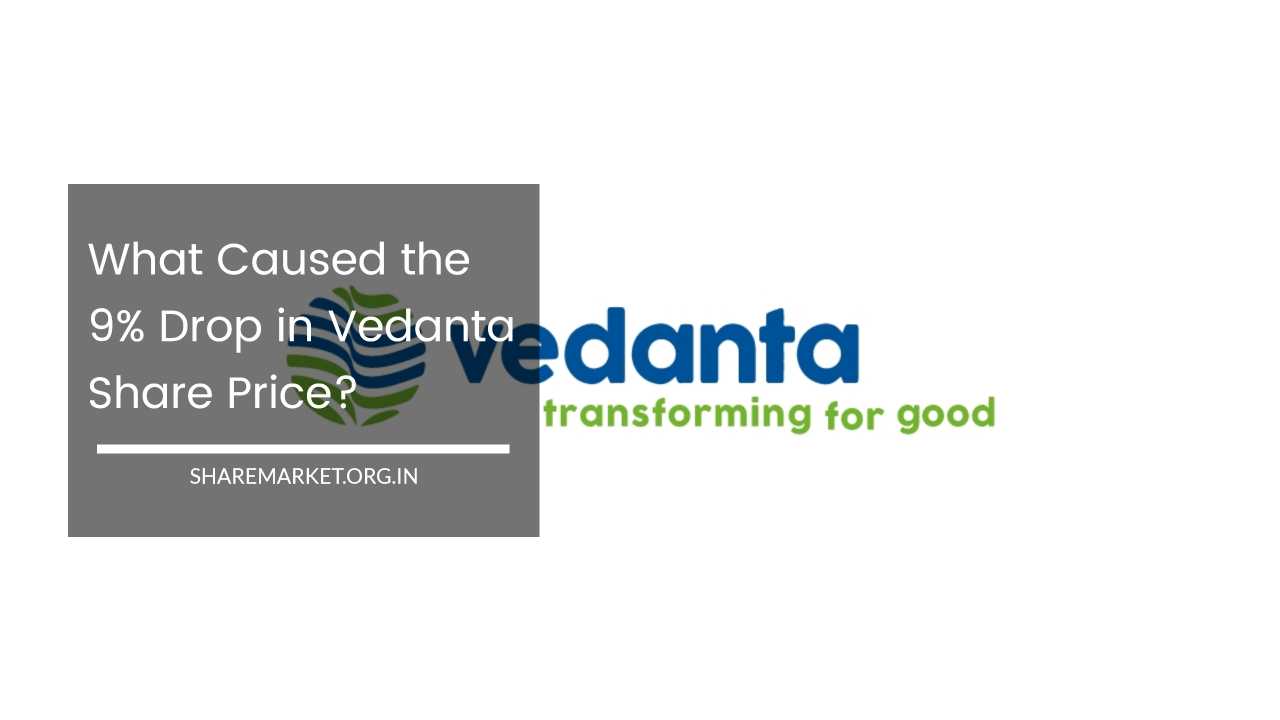What Caused the 9% Drop in Vedanta Share Price?

Vedanta Share Price
Unraveling the Vedanta Saga: Exploring the Factors Behind the 9% Plunge in Shares
The intricacies of the corporate world often give rise to intriguing narratives, and one such tale unfolds in the recent turmoil surrounding Vedanta, a prominent player in the business realm.
The conglomerate’s shares experienced a significant decline of 9% in a single day, casting a spotlight on the factors that contributed to this plummet.
As we delve into this story, we uncover a complex web of financial maneuvers, ownership dynamics, debt management strategies, and market sentiment that culminated in this remarkable event.
The First Quarter Dilemma
The story begins with a lackluster start to the first quarter of the financial year 2023-24 for Vedanta.
The conglomerate’s consolidated net profit suffered a substantial setback, registering a staggering 40% year-on-year decline, resulting in a recorded figure of Rs 2,640 crore for the June quarter.
While this decline is certainly notable, it is interesting to note that the performance exceeded analysts’ estimates, who had projected a more substantial fall to Rs 1,410 crore.
This divergence from predictions hints at underlying factors that may have mitigated the extent of the profit decline.
The Twin Star Holdings’ Bombshell
A seismic shock reverberated through the market when Twin Star Holdings, a key promoter company led by veteran businessman Anil Agarwal, announced its intention to sell a significant portion of Vedanta shares.
The intended sell-off amounted to shares worth Rs 4,130 crore, equating to approximately 4.3% of its stake, and was slated to be executed at a unit price of Rs 258.5.
This announcement triggered a chain reaction of investor behavior, with a massive wave of sell orders flooding the market.
The stock price took an immediate nosedive, plummeting by a substantial 9% to reach Rs 247.80 during intraday trading on the Bombay Stock Exchange (BSE).
Ownership Dynamics and Debt Repayment
To understand the full implications of this sell-off, it is crucial to delve into Vedanta’s ownership structure. Twin Star Holdings, with a significant 46.4% stake, holds substantial sway within the conglomerate.
When combined with the ownership by other promoters, the collective stake stands at an impressive 68.11%.
The decision to sell shares was predominantly motivated by the imperative to repay existing debts, shedding light on the intricacies of Vedanta’s financial obligations.
Vedanta Resources’ Predicament
The timing of the share sell-off and dividend disbursement gains additional significance against the backdrop of Vedanta Resources, Vedanta’s UK-listed parent company.
This parent company is currently grappling with a substantial burden of debt, raising questions about its ability to manage its financial commitments.
As the decision to sell shares and distribute dividends coincides with Vedanta Resources’ financial challenges, it underscores the delicate balance Vedanta must maintain between its operational needs and its broader financial landscape.
Navigating Bond Repayments
Vedanta Resources’ looming bond repayments inject a sense of urgency into the conglomerate’s financial decisions. With $100 million in bonds due in August and an additional $100 million scheduled for repayment in January, the pressure is palpable.
Moreover, the fiscal year 2024 demands a hefty debt repayment of $420 million, a significant obligation that necessitates prudent financial planning.
A substantial portion of this debt, amounting to $200 million, has already been repaid in the June quarter of the ongoing fiscal year.
Impact on Vedanta’s Financial Terrain
The ramifications of these developments are reflected in Vedanta’s financial landscape. The conglomerate’s gross debt, which stood at Rs 66,182 crore at the close of the March quarter, has surged to Rs 73,484 crore.
However, amidst these financial challenges, Vedanta’s resilience becomes apparent as it concluded the June quarter with cash or cash equivalents totaling Rs 14,292 crore.
This liquidity cushion serves as a testament to the conglomerate’s ability to navigate adversity while maintaining a measure of financial stability.
Future Capital Expenditure and Strategic Outlook
In response to the multifaceted challenges, Vedanta has adopted a strategic approach aimed at reinforcing its financial position.
The conglomerate has committed to infusing a substantial capital investment of $170 million in the ongoing fiscal year.
This capital injection exceeds the $120 million capital expenditure recorded in the previous fiscal year, reflecting Vedanta’s determination to fortify its operations and position itself for sustainable growth amid the ongoing financial turbulence.
Final Words
The 9% drop in Vedanta’s shares serves as a microcosm of the intricate interplay between ownership dynamics, financial obligations, debt management, and market sentiment.
Twin Star Holdings’ decision to sell shares, Vedanta Resources’ debt predicament, and Vedanta’s financial performance collectively shape the narrative of this saga.
As Vedanta navigates these challenges, its ability to strike a delicate balance between operational resilience and financial prudence will define its trajectory in the ever-evolving global market landscape.
The tale of Vedanta’s share plunge is a reminder of the complexity inherent in the world of corporate finance, where decisions and strategies are intertwined in a delicate dance that influences the destiny of conglomerates and investors alike.

















